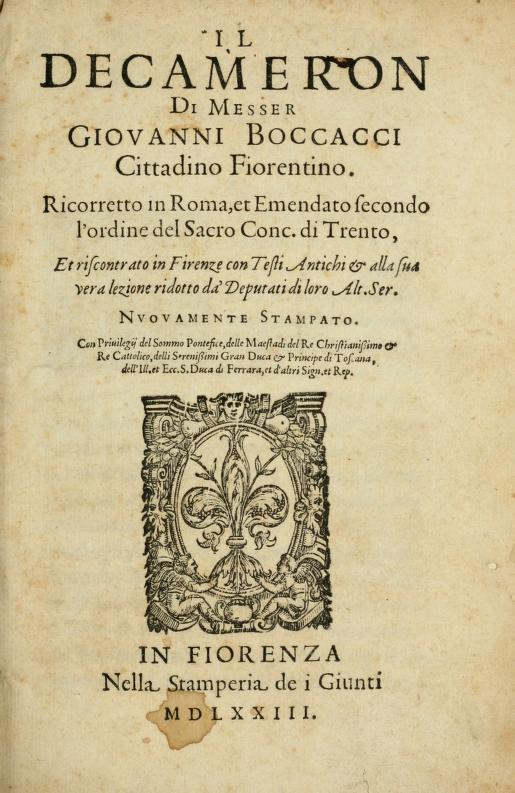Decameron
Annotation
Giovanni Boccaccio provided the most famous description of what happened during the Black Death in Italy. His report on the behavior of the Florentines after plague entered their city during the spring of 1348 serves as introduction and frame for his collection of 100 tales entitled the Decameron. The epidemic provides the pretext for a group of young men and women to leave Florence and retire to a pleasant villa in the countryside where they entertain themselves by telling stories over 10 days. Though the novella range from the bawdy to the pious, the story telling is light hearted in keeping with the purpose of restorative diversion.
Boccaccio's introduction, however, has a very different tone. Here the author relates in precise detail the gruesome symptoms of the disease and the horrific circumstances that took place in Florence as the epidemic swept through the town disrupting all forms of normal human relations. Government, medical care, and neighborliness broke down. Some people secluded themselves and restricted their diet, others recklessly gave themselves over to pleasure, and still others tried to behave temperately. But most distressing of all, according to Boccaccio, was the collapse of families and the abandonment of children. The English translation is followed by the original in Italian.
This source is a part of the Children during the Black Death teaching module.
Text
It was not merely a question of one citizen avoiding another, and of people almost invariably neglecting their neighbours and rarely or never visiting their relatives, addressing them only from a distance; this scourge had implanted so great a terror in the hearts of men and women that brothers abandoned brothers, uncles their nephews, sisters their brothers, and in many cases wives deserted their husbands. But even worse, and almost incredible was the fact that fathers and mothers refused to nurse and assist their own children, as though they did not belong to them.
Translation
[Original in Italian]
E lasciamo stare che l'uno cittadino l'altro schifasse e quasi niuno vicino avesse dell'altro cura e i parenti insieme rade volte o non mai si visitassero e di lontano: era con sí fatto spavento questa tribulazione entrata ne' petti degli uomini e delle donne, che l'un fratello l'altro abbandonava e il zio il nepote e la sorella il fratello e spesse volte la donna il suo marito; e, che maggior cosa è e quasi non credibile, li padri e lemadri i figliuoli, quasi loro non fossero, di visitare e di servire schifavano.
Credits
Annotated by Shona Kelly Wray.
